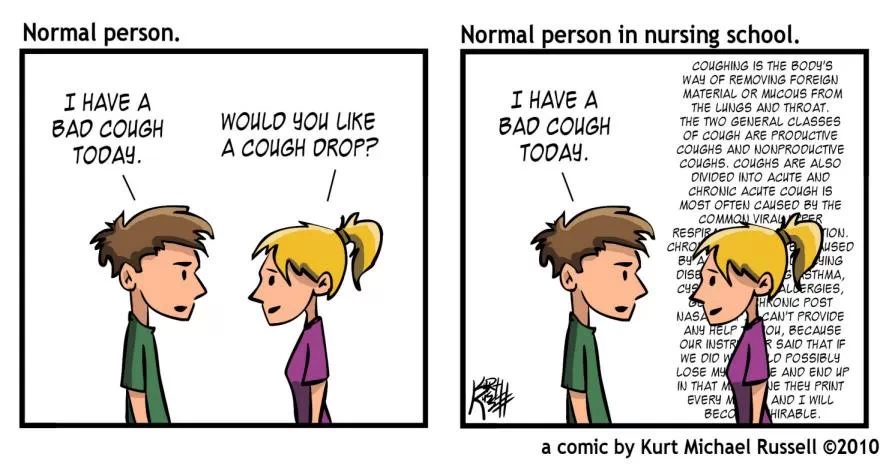|Featured Image Here|
I’ll be starting this article with the rather unfortunate circumstance our generation is under. Ask someone what they want to do when they grow up, and some would reply with this:
What I want to be when I grow up? I want to be a doctor, move back to my home country and provide service for free.
I’m sorry for my incredibly biased and cynical opinion, but I’ve heard those words from too many people 
What a cruel world.
But why is there such demand for doctors? People look up to doctors. They’re thought to be smart, caring, dedicated, wealthy, and incredibly important in society in general.
With the many reasons to become a doctor, almost everyone dreamt to be one at some point. Med school is unfortunately, not for everyone [who can afford it]. Some people would enjoy it more than others and some would find the work more natural than the others. And this all comes with personality.
Medicine

Employment Prospects: A+ to B+ in around 10-15 years
Courseload: ??
Medicine requires commitment, perseverance, foregoing certain life aspects, and the ability to handle a big student loan. Let’s break the journey down:
High School (starts when you’re 15 years old)
The commitment really has to start from here. Courses that would provide University credits (IB and AP) would significantly help your admission to your preferred pre-med program, provided you did well. They will also significantly decreased your university course load, allowing for more time volunteering and finding internships.
Make sure to take physics, biology, chemistry, and Mathematics to the 30 level. Math 31 won’t be nearly as useful.
Choosing your pre med major (17 y/o)

1) Will it prepare you for the MCAT?
2) Will it give you time for internships and volunteering?
3) Will it afford you a back up career?
Degrees fulfill these factors to different extent. Let’s check out some of them:
Biology – majority of biology majors aren’t there for biology but for premed. While it does prepare you for the MCAT (1) medical school admission guidelines sometimes use affirmative action regulation preferring other majors to encourage diversity. General biology is also often laid back enough for internships and such (2). Biology as a back up career would be iffy due to their sheer numbers coming out of university (3). I would overall recommend to check out other options before defaulting to biology.
Health/Biomedical Science – similar to biology in many ways (1,2,3). Note however, that health Science is intended for research rather than med school, making it an inferior choice to even biology.
Nursing – you’ll get much more clinical training through nursing than in health Science while getting the theory down for MCAT(1). Being so inline with Healthcare work, nursing is also a good way to access internship opportunities (2). Lastly, nursing by itself is an excellent career (more on this later) that rewards those who work hard and the pursue advanced positions with salaries similar to actual medical doctors (3). Excellent premed and degree in itself.

Environmental Science – this one’s a bit tricky. It does prepare for the MCAT and offers fair job opportunities (1,3). There will have to be compromises, however, for internships and volunteering. In order to secure a career in the environmental Industry, taking time to network and find internships is necessary. This would take lots of time away from MCAT preparation and health internships. However, if your goal is to choose between a medical job and one more corporate, environmental Science is worth considering. (2)
Liberal/Fine/Performing/Visual Arts – if you’re sure about becoming a doctor but would also like to pursue another passion on the side, taking a Bachelor of Arts would be an excellent idea. The low course load makes the MCAT less daunting while giving more than enough time for volunteering and internships (1, 2). Finding reliable work in these fields, however, would be difficult (3).
Economics – this degree is magic. It’s an in demand art degree that can pay more than Engineering. (1,2,3) Note that an internship would be very helpful in breaking into econ. If you find both economics and medicine interesting, this major is definitely for you.


